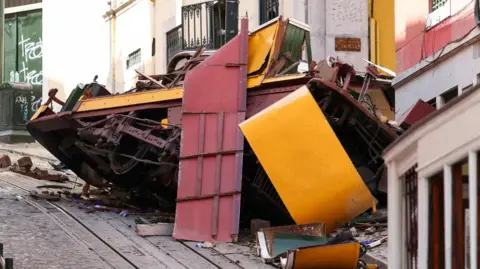The article text:
India’s aviation watchdog has mandated an inspection of fuel control switches on Boeing jets following the tragic Air India Flight 171 disaster in June that resulted in the loss of 260 lives. This step comes after a preliminary investigation suggested that the fuel supply to the engines was cut off shortly after take-off, an alarming finding that has raised serious concerns about the safety of these components.
The Directorate General of Civil Aviation (DGCA) issued the order, requiring airlines to conduct these inspections by July 21, underlining the necessity for prompt action to maintain airworthiness and public safety. This move is in alignment with a 2018 advisory from the US Federal Aviation Administration (FAA), which recommend inspections of the locking feature on fuel cut-off switches. Although the FAA deems the switches safe, the lack of mandated inspections by Air India prior to the crash raised questions and concerns, prompting the DGCA's decisive action.
The investigative focus has garnered attention not only from Indian authorities but also from international stakeholders, reflecting a sharp increase in scrutiny of Boeing aircraft safety protocols. Additionally, the Indian Commercial Pilots' Association voiced their support for the Flight 171 crew, defending their actions and asserting that they operated in accordance with their training during a challenging situation.
As the investigation through the India Aircraft Accident Investigation Branch (AAIB) continues, it has been made clear that the purpose of the preliminary report is to gather facts without assigning blame. Other nations, such as South Korea, are also considering their own inspections across airlines operating Boeing aircraft to ensure similar safety measures are enforced globally.
India’s aviation watchdog has mandated an inspection of fuel control switches on Boeing jets following the tragic Air India Flight 171 disaster in June that resulted in the loss of 260 lives. This step comes after a preliminary investigation suggested that the fuel supply to the engines was cut off shortly after take-off, an alarming finding that has raised serious concerns about the safety of these components.
The Directorate General of Civil Aviation (DGCA) issued the order, requiring airlines to conduct these inspections by July 21, underlining the necessity for prompt action to maintain airworthiness and public safety. This move is in alignment with a 2018 advisory from the US Federal Aviation Administration (FAA), which recommend inspections of the locking feature on fuel cut-off switches. Although the FAA deems the switches safe, the lack of mandated inspections by Air India prior to the crash raised questions and concerns, prompting the DGCA's decisive action.
The investigative focus has garnered attention not only from Indian authorities but also from international stakeholders, reflecting a sharp increase in scrutiny of Boeing aircraft safety protocols. Additionally, the Indian Commercial Pilots' Association voiced their support for the Flight 171 crew, defending their actions and asserting that they operated in accordance with their training during a challenging situation.
As the investigation through the India Aircraft Accident Investigation Branch (AAIB) continues, it has been made clear that the purpose of the preliminary report is to gather facts without assigning blame. Other nations, such as South Korea, are also considering their own inspections across airlines operating Boeing aircraft to ensure similar safety measures are enforced globally.






















